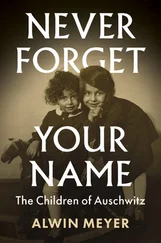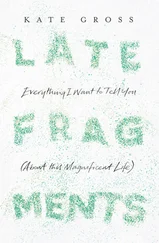Every day, at the dinner table, Nath sat quietly while his father quizzed Lydia about her friends, while his mother nudged Lydia about her classes. When they turned, dutifully, to him, he was tongue-tied, because his father — still seared by the memory of a smashed television and his son’s slapped face, did not ever want to hear about space. And that was all Nath read or thought about. In his spare moments, he worked his way through every book in the school card catalog. Spaceflight. Astrodynamics. See also: combustion; propulsion; satellites . After a few stuttering replies, the spotlight would swivel back to Lydia, and Nath would retreat to his room and his aeronautics magazines, which he stashed under his bed like pornography. He did not mind this permanent state of eclipse: every evening, Lydia rapped at his door, silent and miserable. He understood everything she did not say, which at its core was: Don’t let go . When Lydia left — to struggle over her homework or a science fair project — he turned his telescope outward, looking for faraway stars, far-off places where he might one day venture alone.
And Lydia herself — the reluctant center of their universe — every day, she held the world together. She absorbed her parents’ dreams, quieting the reluctance that bubbled up within. Years passed. Johnson and Nixon and Ford came and went. She grew willowy; Nath grew tall. Creases formed around their mother’s eyes; their father’s hair silvered at the temples. Lydia knew what they wanted so desperately, even when they didn’t ask. Every time, it seemed such a small thing to trade for their happiness. So she studied algebra in the summertime. She put on a dress and went to the freshman dance. She enrolled in biology at the college, Monday, Wednesday, Friday, all summer long. Yes. Yes. Yes.
(What about Hannah? They set up her nursery in the bedroom in the attic, where things that were not wanted were kept, and even when she got older, now and then each of them would forget, fleetingly, that she existed — as when Marilyn, laying four plates for dinner one night, did not realize her omission until Hannah reached the table. Hannah, as if she understood her place in the cosmos, grew from quiet infant to watchful child: a child fond of nooks and corners, who curled up in closets, behind sofas, under dangling tablecloths, staying out of sight as well as out of mind, to ensure the terrain of the family did not change.)
A decade after that terrible year, everything had turned upside down. For the rest of the world, 1976 was a topsy-turvy time, too, culminating in an unusually cold winter and strange headlines: Snow Falls on Miami. Lydia was fifteen and a half, and winter break had just begun. In five months she would be dead. That December, alone in her room, she opened her bookbag and pulled out a physics test with a red fifty-five at the top.
The biology course had been hard enough, but by memorizing kingdom, phylum, and class she’d passed the first few tests. Then, as the course got tougher, she had gotten lucky: the boy who sat to her right studied hard, wrote large, and never covered up his answers. “My daughter,” Marilyn had said that fall to Mrs. Wolff— Doctor Wolff—“is a genius. An A in a college class, and the only girl, too.” So Lydia had never told her mother that she didn’t understand the Krebs cycle, that she couldn’t explain mitosis. When her mother framed the grade report from the college, she hung it on her wall and pretended to smile.
After biology, Marilyn had other suggestions. “We’ll skip you ahead in science this fall,” she’d said. “After college biology, I’m sure high school physics will be a snap.” Lydia, knowing this was her mother’s pet subject, had agreed. “You’ll meet some of the older students,” her father had told her, “and make some new friends.” He’d winked, remembering how at Lloyd, older had meant better. But the juniors all talked to each other, comparing French translations due next period or memorizing Shakespeare for the quiz that afternoon; to Lydia they were merely polite, with the distant graciousness of natives in a place where she was a foreigner. And the problems about car crashes, shooting cannons, skidding trucks on frictionless ice — she couldn’t make the answers turn out. Race cars on banked tracks, roller coasters with loops, pendulums and weights: around and around, back and forth she went. The more she thought about it, the less sense it made. Why didn’t the race cars tip over? Why didn’t the roller coaster fall from its track? When she tried to figure out why, gravity reached up and pulled down the cars like a trailing ribbon. Each night when she sat down with her book, the equations — studded with k and M and theta — seemed pointed and dense as brambles. Above her desk, on the postcard her mother had given her, Einstein stuck out his tongue.
Each test score had been lower than the last, reading like a strange weather forecast: ninety in September, mid-eighties in October, low seventies in November, sixties before Christmas. The exam before this one, she’d managed a sixty-two — technically passing, but hardly passable. After class, she’d shredded it into penny-sized scraps and fed it down the third-floor toilet before coming home. Now there was the fifty-five, which, like a bright light, made her squint, even though Mr. Kelly hadn’t written the F at the top of the page. She’d stashed it in her locker for two weeks under a stack of textbooks, as if the combined weight of algebra and history and geography might snuff it out. Mr. Kelly had been asking her about it, hinting that he could call her parents himself, if necessary, and finally Lydia promised to bring it back after Christmas break with her mother’s signature.
All her life she had heard her mother’s heart drumming one beat: doctor, doctor, doctor . She wanted this so much, Lydia knew, that she no longer needed to say it. It was always there. Lydia could not imagine another future, another life. It was like trying to imagine a world where the sun went around the moon, or where there was no such thing as air. For a moment she considered forging her mother’s signature, but her handwriting was too round, too perfectly bulbous, like a little girl’s script. It would fool no one.
And last week, something even more terrifying had happened. Now, from under her mattress, Lydia extracted a small white envelope. Part of her hoped that, somehow, it would have changed; that over the past eight days the words would have eroded so she could blow them away like soot, leaving nothing but a harmless blank page. But when she blew, just one quick puff, the paper quivered. The letters clung. Dear Mr. Lee: We thank you for your participation in our new early admission process and are very pleased to welcome you to the Harvard Class of 1981.
For the past few weeks, Nath had checked the mail every afternoon, even before he said hello to their mother, sometimes before he took off his shoes. Lydia could feel him aching to escape so badly that everything else was falling away. Last week, at breakfast, Marilyn had leaned Lydia’s marked-up math homework against the box of Wheaties. “I checked it last night after you went to bed,” she said. “There’s a mistake in number twenty-three, sweetheart.” Five years, a year, even six months earlier, Lydia would have found sympathy in her brother’s eyes. I know. I know. Confirmation and consolation in a single blink. This time Nath, immersed in a library book, did not notice Lydia’s clenched fingers, the sudden red that rimmed her eyes. Dreaming of his future, he no longer heard all the things she did not say.
He had been the only one listening for so long. Since their mother’s disappearance and return, Lydia had been friendless. Every recess that first fall, she had stood to the side, staring at the First Federal clock in the distance. Each time a minute ticked by, she squeezed her eyes shut and pictured what her mother might be doing — scrubbing the counter, filling the kettle, peeling an orange — as if the weight of all those details could keep her mother there. Later she would wonder if this had made her miss her chance, or if she had ever had a chance at all. One day she had opened her eyes and found Stacey Sherwin standing before her: Stacey Sherwin of the waist-long golden hair, surrounded by a gaggle of girls. In Middlewood’s kindergarten class, Stacey Sherwin was the kingmaker, already adept at wielding her power. A few days earlier, she had announced, “Jeannine Collins stinks like garbage water,” and Jeannine Collins had peeled away from the group, ripping her glasses from her tear-smudged face, while the other girls in Stacey’s coterie tittered. Lydia, from a safe distance, had watched this unfold with awe. Only once, on the first day of kindergarten, had Stacey spoken to her directly: “Do Chinese people celebrate Thanksgiving?” And: “Do Chinese people have belly buttons?”
Читать дальше












